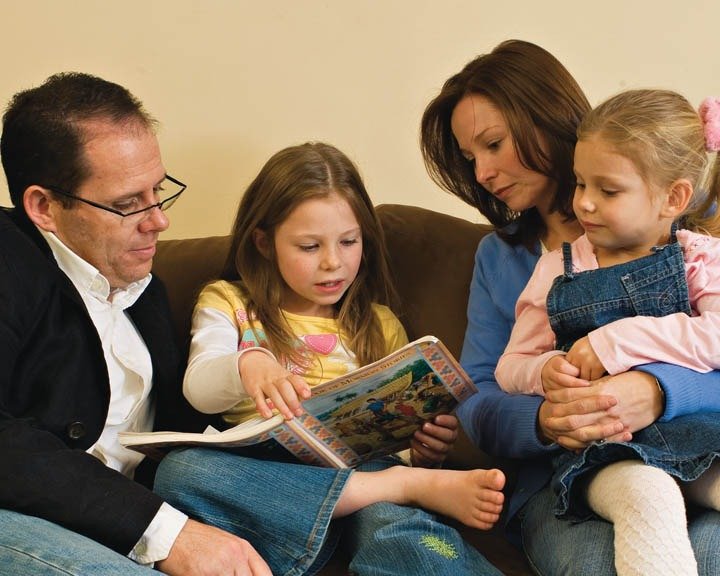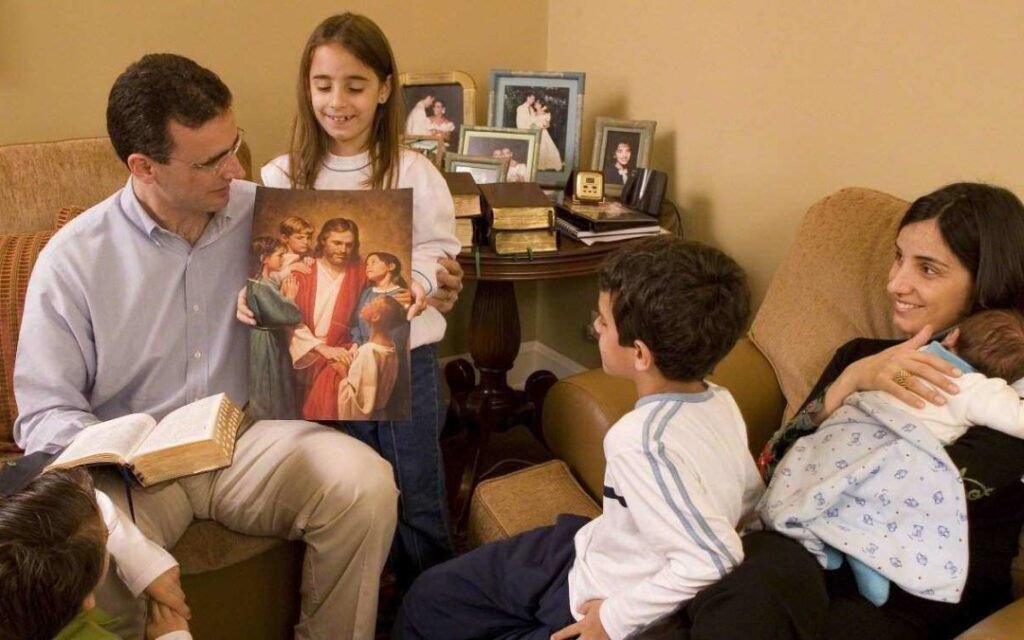Picture this: you’re tucking your little one into bed, and suddenly you hear your own parent’s voice coming out of your mouth. Maybe it’s that sharp tone you swore you’d never use. Or, perhaps it’s a phrase that made you cringe as a child. That moment of recognition hits like a lightning bolt – the realization that we sometimes carry forward patterns we never intended to pass on. This is the heart of what many call the sins of the parents, and it’s something every thoughtful parent grapples with at some point.
The concept of sins of the parents isn’t just ancient wisdom gathering dust on old bookshelves. It’s a living, breathing reality that modern psychology and biblical teaching both recognize – the ways our actions, choices, and unresolved issues can ripple through generations like stones thrown into still water. But here’s the beautiful truth: understanding these patterns is the first step toward breaking them and creating something better for our children.
The Biblical Foundation: What Scripture Really Says About The Sins of the Parents

When we dive into the biblical understanding of generational patterns, we encounter some of the most misunderstood verses in Scripture. The famous passage in Exodus 20:5 states that God is “punishing the children for the sin of the fathers to the third and fourth generation of those who hate me.” At first glance, this might seem harsh or unfair, but the context reveals something far more nuanced and hopeful.
The phrase “the sins of the father” reminds us that God’s law has been established with blessings, as well as judgment. It’s not about cosmic punishment raining down on innocent children, but rather about the natural consequences of choices that echo through family lines. Think of it like this: when a parent struggles with addiction, their children don’t inherit guilt for that addiction, but they may inherit its effects – the instability, the learned coping mechanisms, the normalized dysfunction.
The sins of the parents fall on the child scripture passages are actually warnings, not pronouncements of doom. They’re God’s way of saying, “Pay attention! Your choices matter not just for you, but for those who come after you.” It’s like a loving grandparent warning you that the family tendency toward stubbornness or quick temper runs strong – not to discourage you, but to help you be more intentional about breaking negative cycles.
What’s particularly encouraging is that Scripture also promises the opposite effect. The cure for a generational curse has always been repentance. When we acknowledge harmful patterns and choose differently, we can redirect our family’s trajectory. The same God who allows consequences also provides pathways to healing and restoration.
The Science Behind Generational Patterns

Modern research has given us fascinating insights into how trauma and behavioral patterns actually pass from one generation to the next. It’s not mystical or magical – it’s surprisingly scientific. Studies of Vietnam veterans generated perplexing results in the mid-1980s, leading neuroscientists to discover that trauma could have long-lasting effects on the body.
Here’s where it gets really interesting: our experiences can literally change our biology in ways that affect our children. Research shows that emotional trauma may trigger subtle biological alterations – changes so lasting that parents might even pass them to their own offspring. This isn’t science fiction; it’s epigenetics – the study of how our experiences can alter gene expression without changing the actual DNA sequence.
Traumatic experiences your relatives lived through can sometimes be passed down and affect future generations through what’s called intergenerational trauma. But before you start panicking about every difficult moment you’ve experienced, remember this: awareness is power. When we understand these mechanisms, we can work intentionally to heal and break negative cycles.
The numbers are striking too. Research has found that generational trauma contributes to a high risk for depression, anxiety, and high blood pressure among affected populations. This isn’t about doom and gloom – it’s about understanding so we can intervene and create healthier patterns for our families.
Recognizing Generational Patterns in Your Own Family
Sometimes the patterns are obvious – the family struggle with anger, the tendency toward perfectionism, or the difficulty with emotional intimacy that seems to show up in every generation. Other times, they’re more subtle, like the way certain topics become off-limits or how family members handle stress.
Generational sins are weaknesses or tendencies that are handed down through the generations from parents or family members, involving behavioral patterns and ways of thinking that keep us trapped in the past. These might include:
The perfectionist parent who grew up with impossibly high standards and now finds themselves nitpicking their child’s homework. The emotionally distant father whose own dad never showed affection, perpetuating a cycle of disconnection. The anxious mother whose family taught her that the world is dangerous, now struggling to let her children explore and take age-appropriate risks.
But here’s what’s remarkable – simply recognizing these patterns is like turning on a light in a dark room. Suddenly, you can see what you’re working with. You can make conscious choices instead of operating on autopilot. It’s like having a family map that shows not just where you’ve been, but where you can choose to go.
The Psychology of Sin of the Parents: Understanding Learned Behaviors

From a psychological perspective, many of the patterns we call the sin of the parents are actually learned behaviors and coping mechanisms that outlived their usefulness. A grandmother who lived through the Great Depression might have hoarded food and money – behaviors that made perfect sense during scarcity but created anxiety and control issues in times of abundance.
Children are like little scientists, constantly observing and experimenting to figure out how the world works. They learn not just from what we tell them, but from what they see us do, how we handle stress, how we treat others, and how we talk about ourselves. If a parent consistently speaks harshly about their own mistakes, children learn that self-criticism is normal. If conflict always leads to days of silent treatment, children learn that anger is dangerous and should be avoided at all costs.
The beautiful thing about understanding these patterns through a psychological lens is that it removes shame and blame. Your great-grandfather’s struggle with alcohol wasn’t a moral failing that cursed your family line – it was likely his way of coping with trauma or pain he didn’t have the tools to address. Your mother’s anxiety wasn’t weakness – it might have been a protective mechanism that helped her survive difficult circumstances.
When we view generational patterns through the lens of learned behavior rather than inherited sin, we can approach change with compassion rather than self-condemnation. We can ask ourselves: “What did this behavior serve in previous generations, and how can we meet those underlying needs in healthier ways?”
Breaking Free: Practical Strategies for Change
Without Jesus no one can break the grip of sin, but even without adversity from family members, it can be very difficult to recognize and break sinful patterns in families. Whether you approach change from a spiritual perspective, a psychological one, or both, the journey requires intentionality and often support from others.
Here are some practical strategies that families have found helpful:
Start with awareness and compassion. Before you can change patterns, you need to see them clearly. This means looking at your family history with curiosity rather than judgment. What challenges did previous generations face? What strengths did they develop? How did they cope with difficulty, and what did those coping mechanisms cost them and their children?
Create new family traditions and rituals. If your family of origin struggled with emotional expression, you might institute a weekly “feelings check-in” where everyone shares something they’re grateful for and something they’re struggling with. If previous generations dealt with conflict through withdrawal, you might create new rules about working through disagreements together.
Seek support and guidance. Whether through counseling, spiritual direction, support groups, or trusted friends, breaking generational patterns rarely happens in isolation. Sometimes we need outside perspectives to see our blind spots and encouragement to keep going when change feels difficult.
Practice grace with yourself and others. Change is messy and non-linear. You’ll have days when you sound exactly like your parent in their worst moments, and that’s okay. The goal isn’t perfection – it’s progress and intentionality.
Creating New Legacies: The Hope Beyond The Sins of the Parents

The most beautiful aspect of understanding generational patterns is realizing that every generation has the opportunity to be a cycle-breaker. You don’t have to be perfect to create positive change – you just need to be intentional. When you choose to respond differently to your child’s meltdown than your parents responded to yours, you’re literally rewiring generational patterns.
As one counselor notes, “Hurt people, hurt people,” but the opposite is also true: healed people can heal people. When we do our own work – whether that’s therapy, spiritual growth, learning new parenting skills, or simply practicing more self-awareness – we create ripples of healing that extend far beyond ourselves.
Research shows that positive changes in parenting can have just as powerful intergenerational effects as negative patterns. Children who grow up with emotionally healthy parents are more likely to develop secure attachments, better emotional regulation, and healthier relationships throughout their lives. They’re also more likely to pass these strengths on to their own children.
The sins of the parents don’t have to define your family’s future. Every day brings new opportunities to choose differently, to respond with love instead of fear, to break patterns of criticism with words of encouragement, and to replace anxiety with trust.
Raising Children with Intentionality
Understanding generational patterns should inspire us to parent with greater intentionality rather than paralyze us with fear. It’s not about becoming perfect parents – that’s impossible and actually harmful to children who need to see that adults can make mistakes and repair them. Instead, it’s about becoming conscious parents who make choices based on what we want to create rather than simply reacting from what we experienced.
This might mean learning new ways to handle your own emotions so you can teach them to your children. It might involve having honest conversations with your kids about family patterns and your commitment to doing things differently. Sometimes it means apologizing when you fall back into old patterns and demonstrating that adults can acknowledge mistakes and change course.
The goal isn’t to shelter our children from all difficulty – that’s neither possible nor beneficial. Instead, it’s to give them tools, support, and modeling that helps them navigate life’s challenges in healthy ways. When children see parents who are committed to growth and healing, they learn that change is possible and that asking for help is a sign of strength, not weakness.
The Spiritual Dimension of Breaking Cycles
For many families, addressing generational patterns involves a spiritual component. This might mean prayer, seeking forgiveness for ways we’ve hurt our children, or asking for wisdom and strength to parent differently than we were parented. It often involves recognizing that we can’t change everything through willpower alone and need support from our faith community and from God.
The beautiful promise in Scripture is that God’s mercy is new every morning. Each day brings fresh opportunities to choose love over fear, patience over frustration, and connection over control. The sins of the parents passages are balanced by equally powerful promises about God’s ability to restore and renew, to bring beauty from ashes and joy from mourning.
Some families find it helpful to have formal times of prayer or ritual around breaking generational patterns – moments where they consciously choose to release old patterns and embrace new ways of being together. Others integrate these intentions into daily life through bedtime prayers, family devotions, or simple moments of gratitude and reflection.
Looking Forward: Your Family’s Unique Story
Every family’s journey with generational patterns is unique. Your great-grandmother’s resilience during wartime might be a strength you want to cultivate, while her tendency toward worry might be something you want to transform into wise preparation rather than anxious fear. Your father’s strong work ethic might be worth preserving, while his difficulty expressing emotions might be something you want to change.
The key is approaching your family history with both honesty and hope. Yes, there are patterns that have caused pain and limitation. But there are also threads of strength, love, and resilience that deserve to be celebrated and continued. Your job isn’t to reject everything from previous generations – it’s to thoughtfully choose which legacies to carry forward and which ones to transform.
As you navigate this journey, remember that you’re not just breaking negative cycles – you’re creating positive new ones. The patience you show your toddler during a difficult moment, the way you and your partner work through conflict with respect and care, the family traditions you create that celebrate each person’s unique gifts – these become the positive patterns that your children will carry forward.
Conclusion: The Legacy You’re Creating Today
The concept of the sins of the parents doesn’t have to fill us with dread or resignation. Instead, it can inspire us to live with greater awareness and intentionality. Every interaction with our children is an opportunity to plant seeds of healing rather than perpetuate patterns of pain. Every time we choose to respond with patience instead of irritation, every time we model healthy conflict resolution, every time we show our children that adults can grow and change – we’re creating positive generational patterns.
Your family’s story doesn’t end with the challenges of previous generations. With awareness, support, and intentional action, you can be the generation that breaks negative cycles and establishes new traditions of health, connection, and love. The sins of the parents can become the catalyst for your family’s greatest transformation.
The chain of generational patterns doesn’t have to bind your family to the past. In your hands lies the power to forge new links – links of healing, hope, and intentional love that will strengthen your family line for generations to come. What legacy will you choose to create today?



